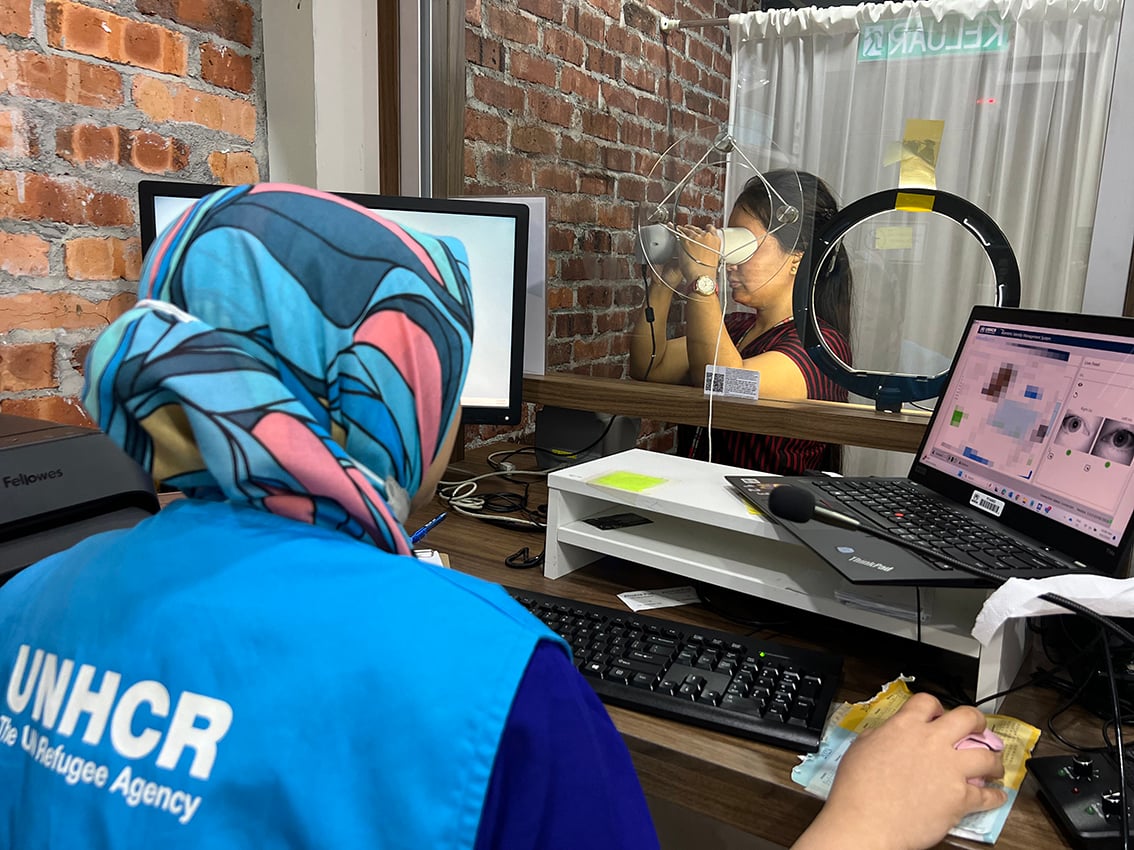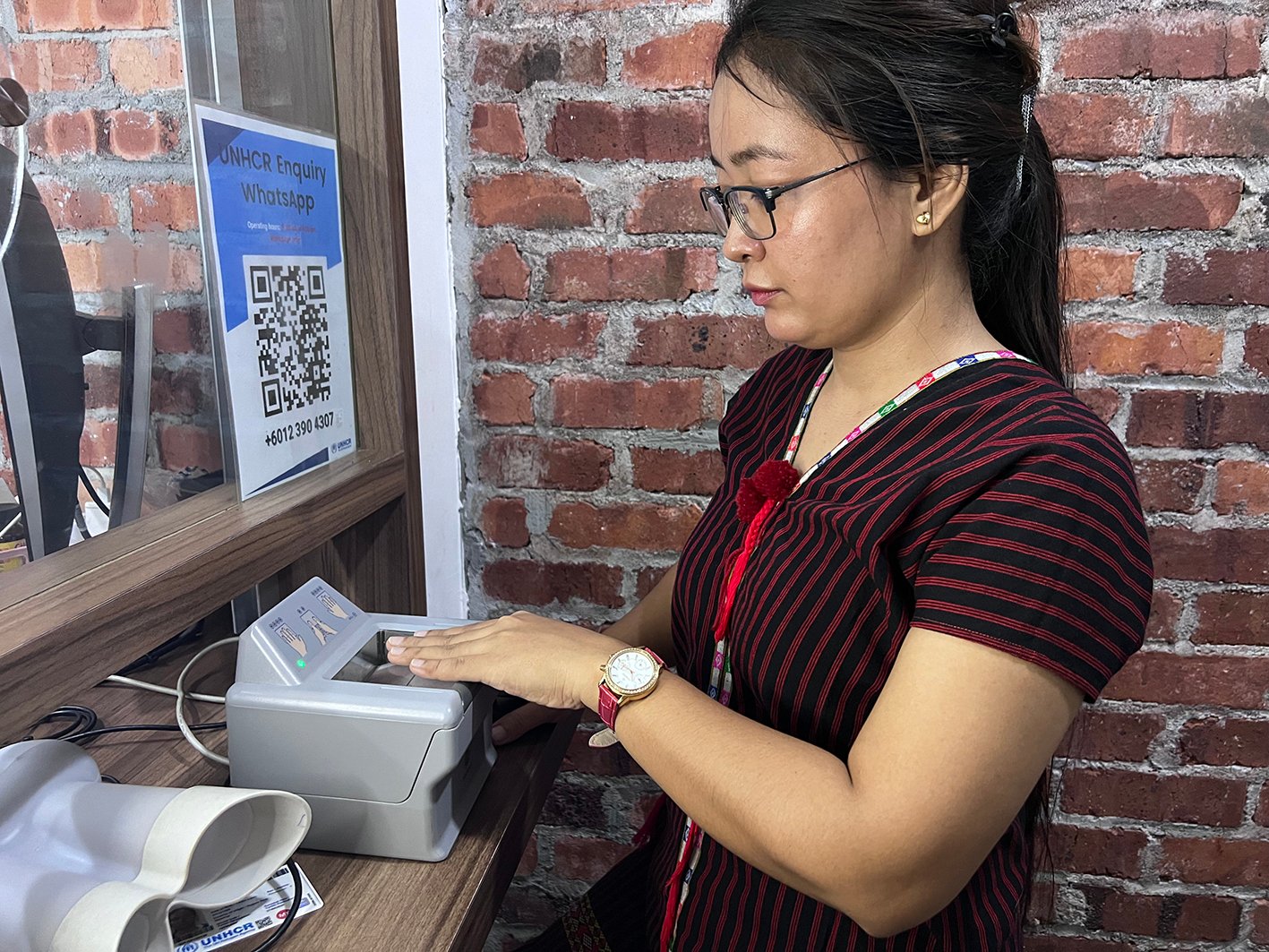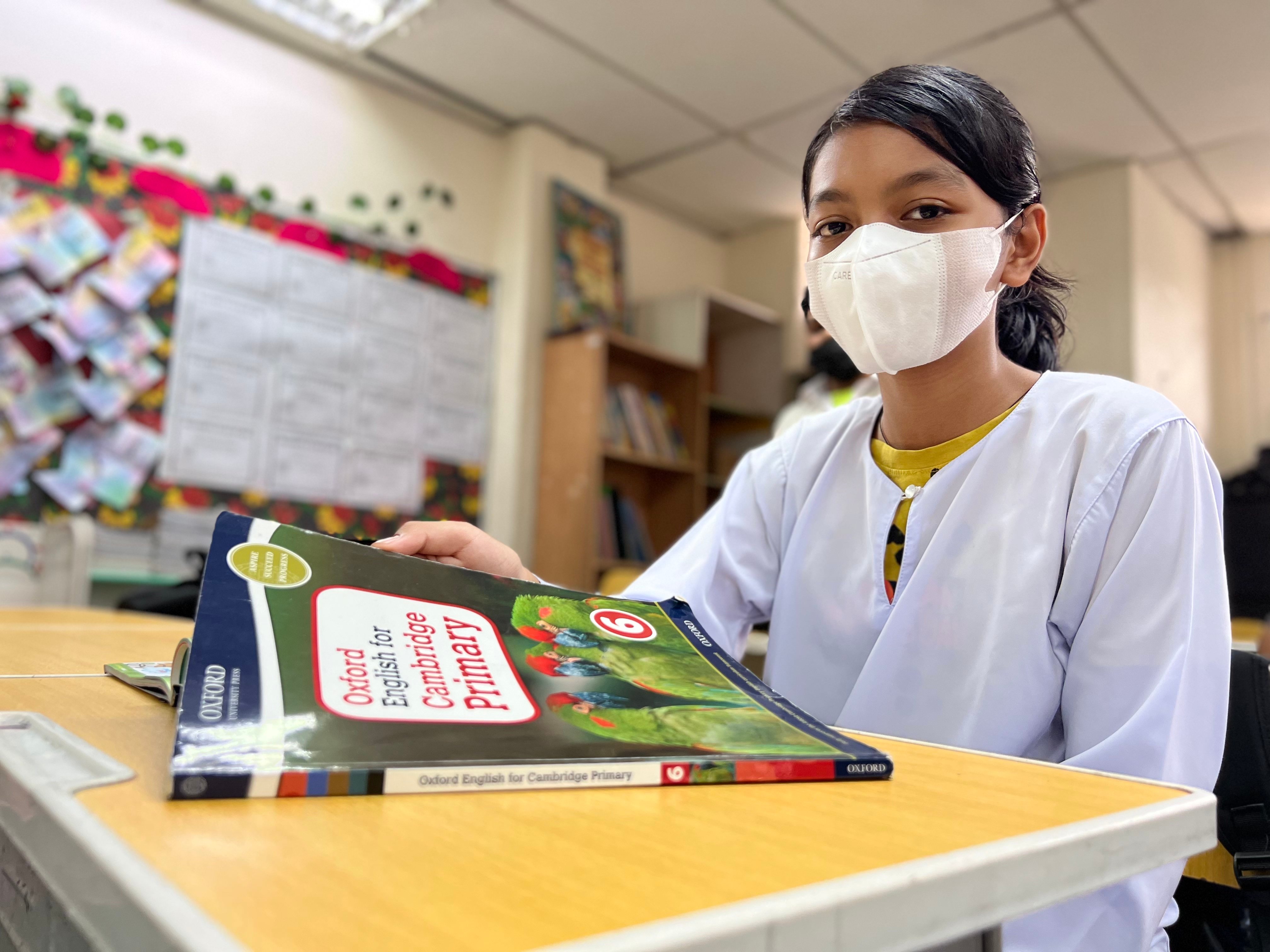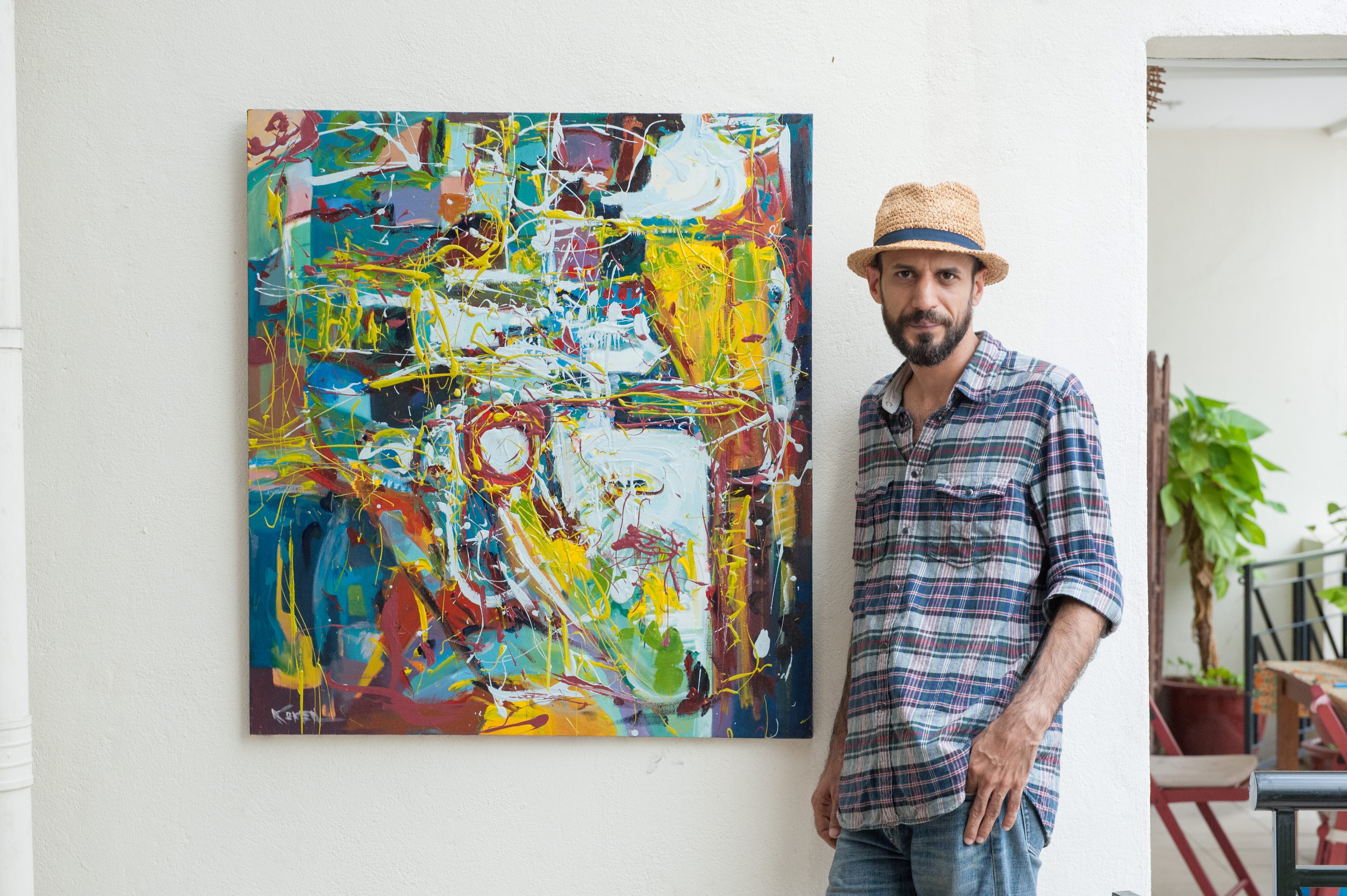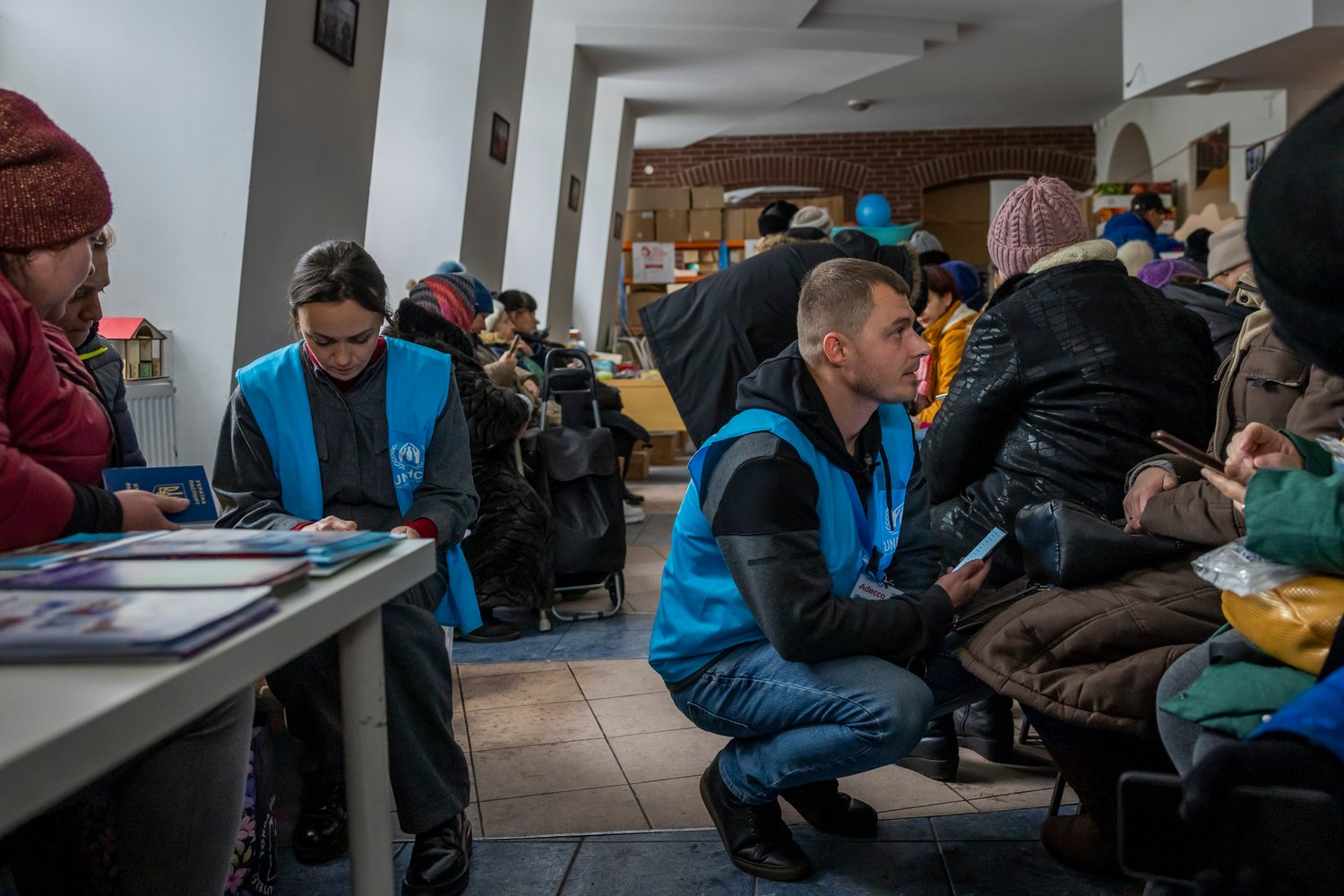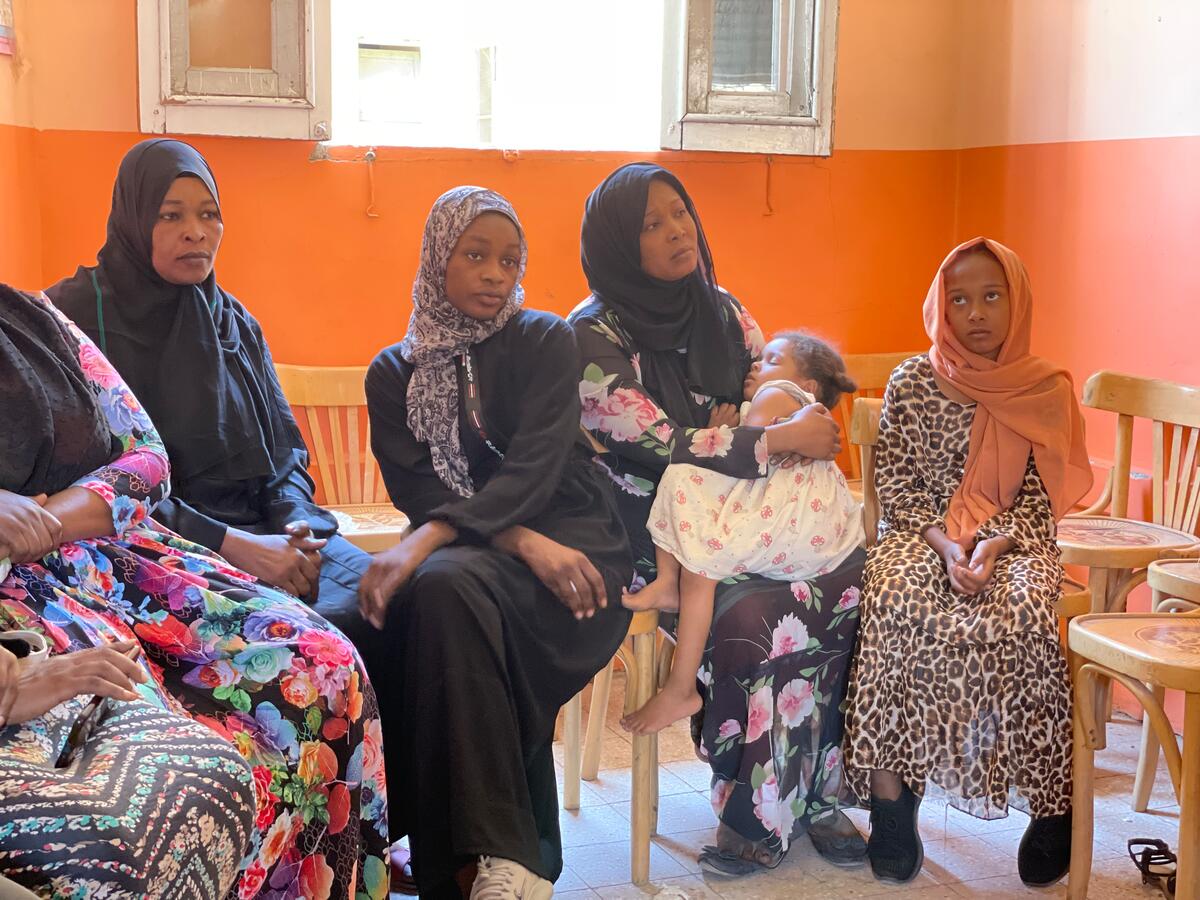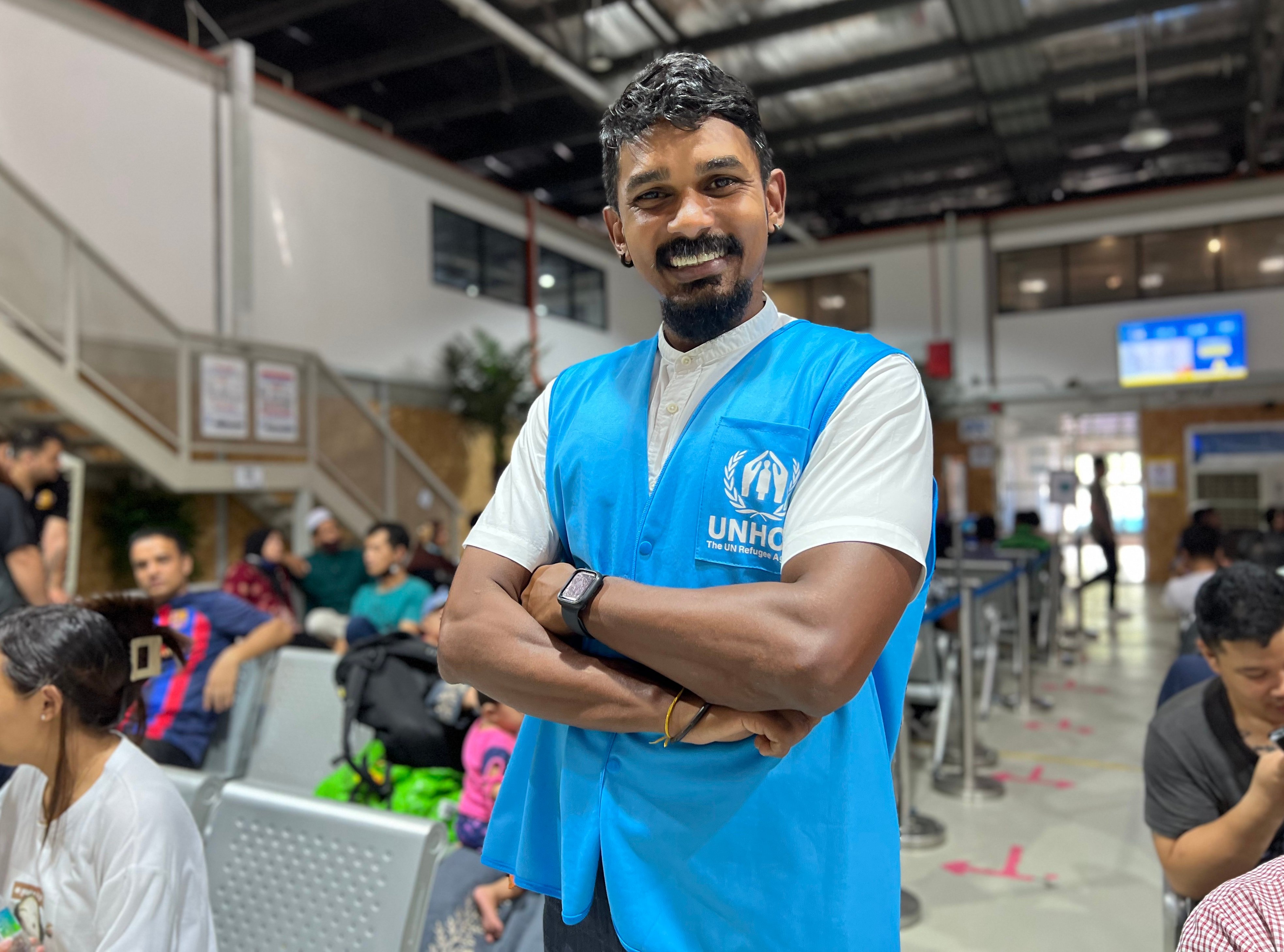Strengthening trust in UNHCR cards enhances protection for refugees
Strengthening trust in UNHCR cards enhances protection for refugees
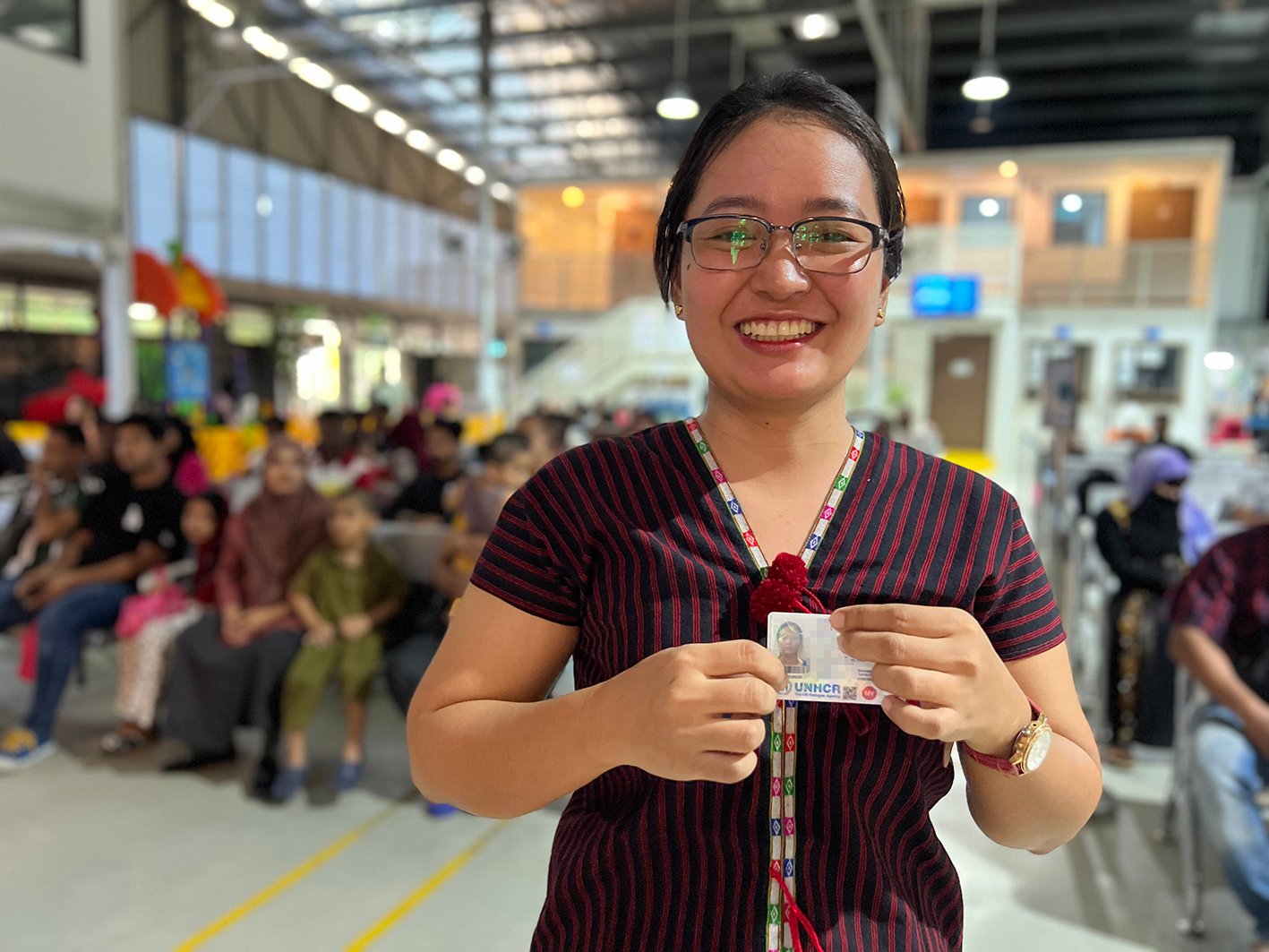
"Having a refugee card is important because it gives me protection" ~ Naem, Myanmar refugee
Kuala Lumpur - 28 year old Myanmar refugee Naem remembers the first time she received an identity card from UNHCR, the UN Refugee Agency in Malaysia and underwent a biometrics scanning process.
“I was 16 years old, and I was very nervous to use the machine,” she said, referring to the biometrics scanner used in UNHCR’s biometric identity management system. “The scanner could not read my fingerprints and iris. I thought I would get scolded or won’t get a UNHCR card. I remember being calmed by the interpreter and UNHCR officer. They told me to not be afraid and helped position my fingers properly.”
Today, renewing her UNHCR card and using the biometrics scanner is routine, and Naem sees its value. She said, “I think it’s important for UNHCR to update our photos - our face may have changed. My card is to verify my own identity. When I renew and update my biometrics, nobody can steal my identity and details, pretending to be me.”
In Malaysia, UNHCR began using a biometric registration system since 2006, efficiently marrying fingerprinting identification with UNHCR's refugee database system.
Biometrics is a unique, measurable characteristic or trait of a human being – such as a fingerprint - for automatically recognising or verifying identity. Today, UNHCR’s biometric system captures both fingerprint and iris images as well as a facial photograph.
“It is important that UNHCR continuously strengthens the security of our registration system – and with it, the identity documentation that UNHCR issues to refugees and asylum-seekers - as it directly affects the quality of protection for refugees and asylum-seekers,” said Thomas Albrecht, UNHCR Representative.
“For instance, a secure registration system helps prevent identity fraud. By referring to a unique human feature – like a fingerprint or an iris - we can determine if a person is already enrolled in our system, and verify if an identity claim is true.
“This heightens the credibility of our registration system in the eyes of Governments, law enforcement authorities, and other stakeholders, and increases confidence in refugee identity records. This in turn facilitates the ability of refugees to credibly demonstrate their identity when dealing with law enforcement officials or accessing services and opportunities.”
There are some 188,210 refugees and asylum-seekers registered with UNHCR in Malaysia, as of end April 2024. The majority are from Myanmar, fleeing conflict-affected areas or persecution. The remaining individuals are from 50 other countries fleeing war and persecution, including Pakistanis, Yemenis, Syrians, Afghans, Somalis and Palestinians.
In light of this difficult protection environment, UNHCR has made significant investments in further tightening its procedures and ensuring the integrity of its documentation, in consultation with Malaysian authorities, as part of its continued efforts to combat identity fraud and card counterfeiting.
“For several years now, our cards have enhanced security features, including 3D holograms, bar codes, and a ‘Secure Quick Response’ (SQR) code, supported by biometric data collection at the UNHCR office, which includes iris and 10-finger scanning,” said Albrecht.
“The authenticity of the card can also be verified through a mobile application called the UNHCR Verify Plus which allows law enforcement officials and others engaged in UNHCR’s protection and assistance work to easily verify the authenticity of the card.”
The mobile application has allowed law enforcement officials and others engaged in UNHCR’s protection and assistance work to instantly verify the authenticity of the card, which increases the protection space for refugees in the country.
On the ground, what is clear is how much refugees and asylum-seekers rely on the documentation issued by UNHCR to feel a sense of safety and security.
Myanmar refugee Naem’s account attests to that: “Having a refugee card is important because it gives me protection. I get protection from being arrested. With the UNHCR card, I am able to get 50% off the foreigners’ rate at public hospitals. I can seek medical treatment at a government hospital, instead of going to a private clinic. If I am being discriminated or harassed or bullied, I feel confident enough to seek protection from the Malaysian police.
“When I finally received my UNHCR card, I felt happiness, relief, and excitement for my own future. More than the protection, the biggest gift that I received from the UNHCR card, is the confidence. The confidence to go out freely, the confidence that I will not get arrested, the confidence that I can finally start dreaming of a future.”
UNHCR greatly appreciates the contributions of donors, including the European Union for its continued support under the European Civil Protection and Humanitarian Aid Operations (ECHO) funding, that helps UNHCR carry out crucial protection work in the country.



